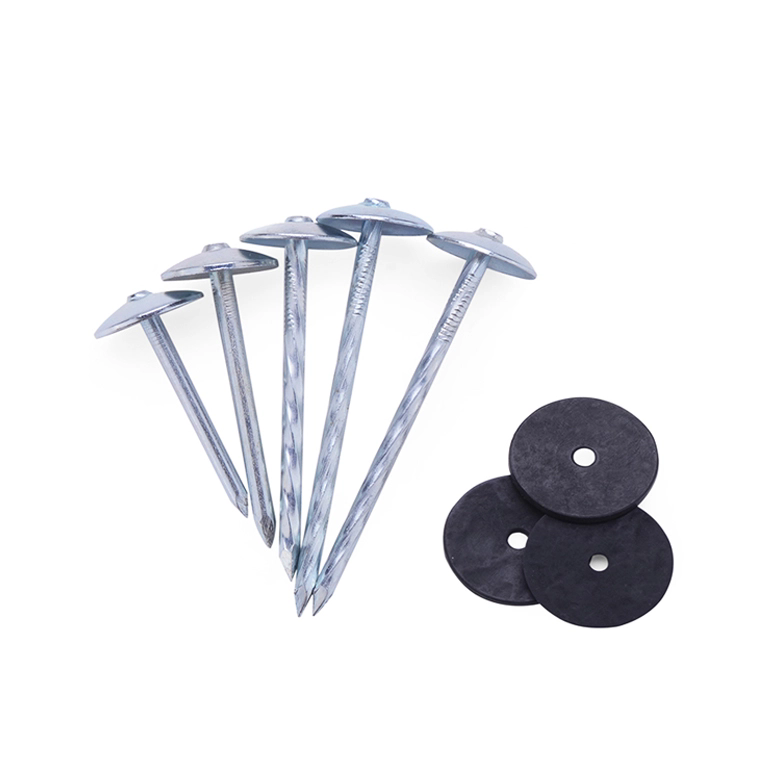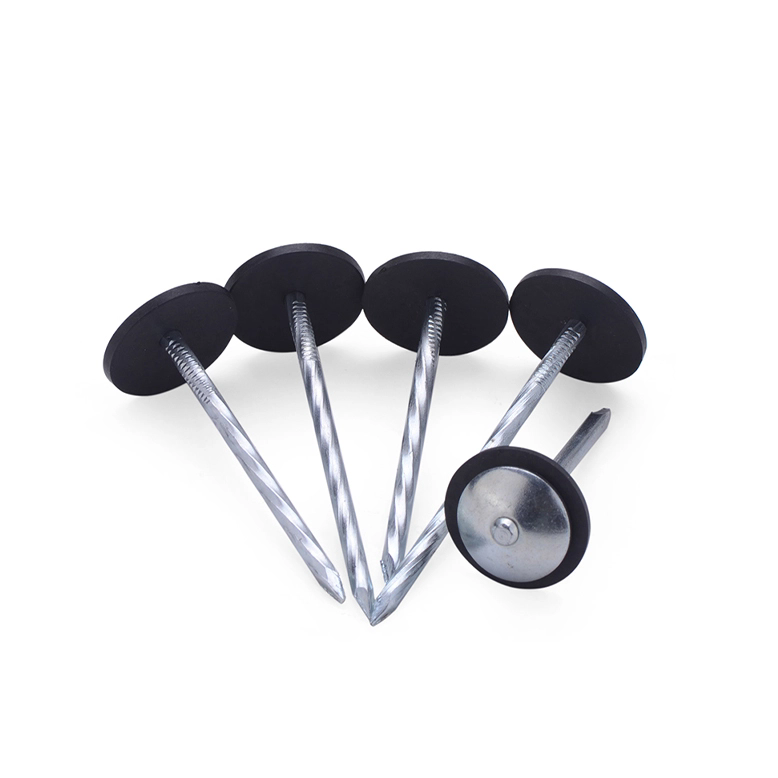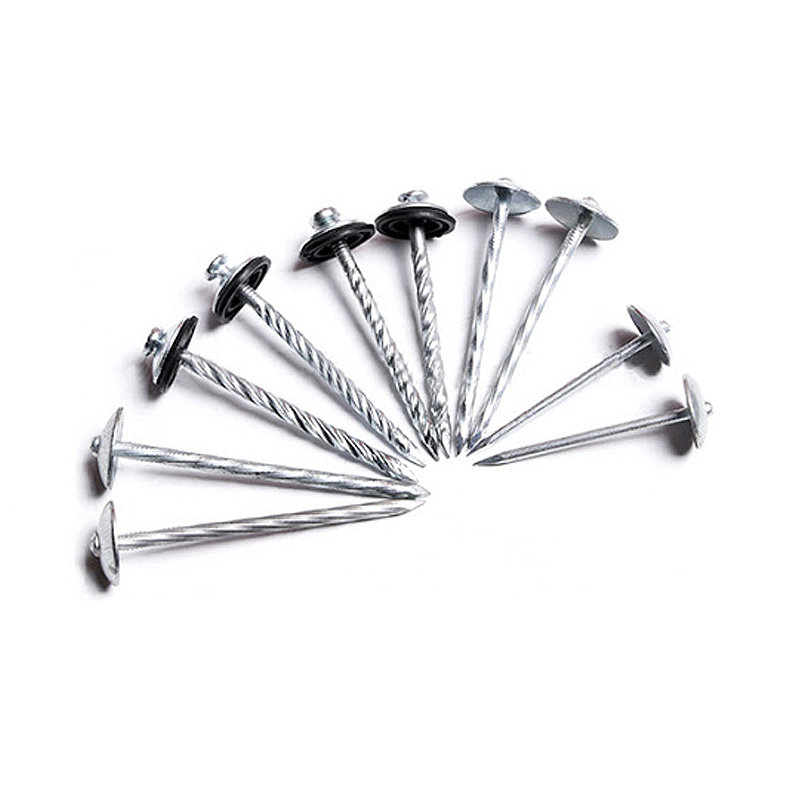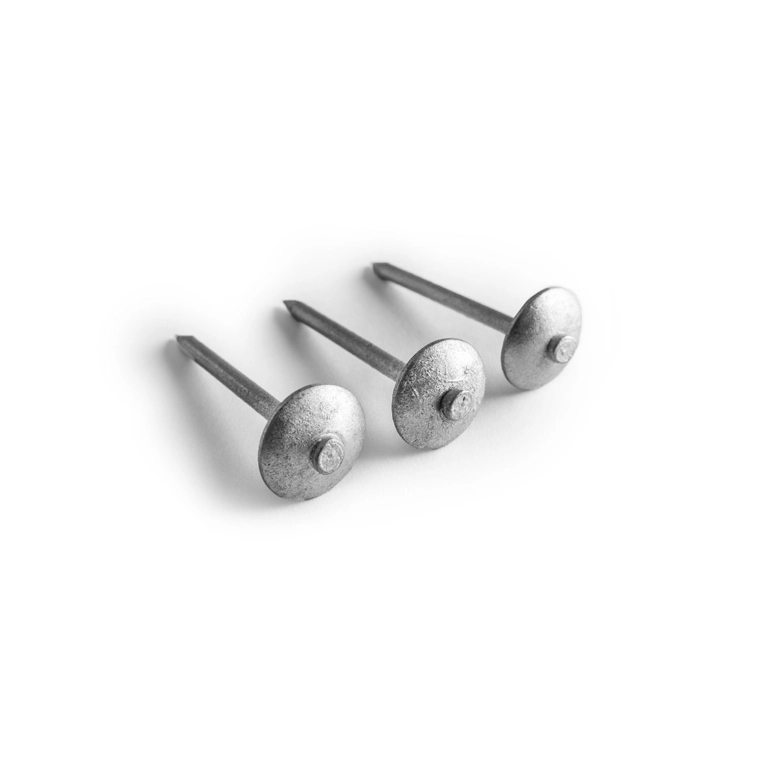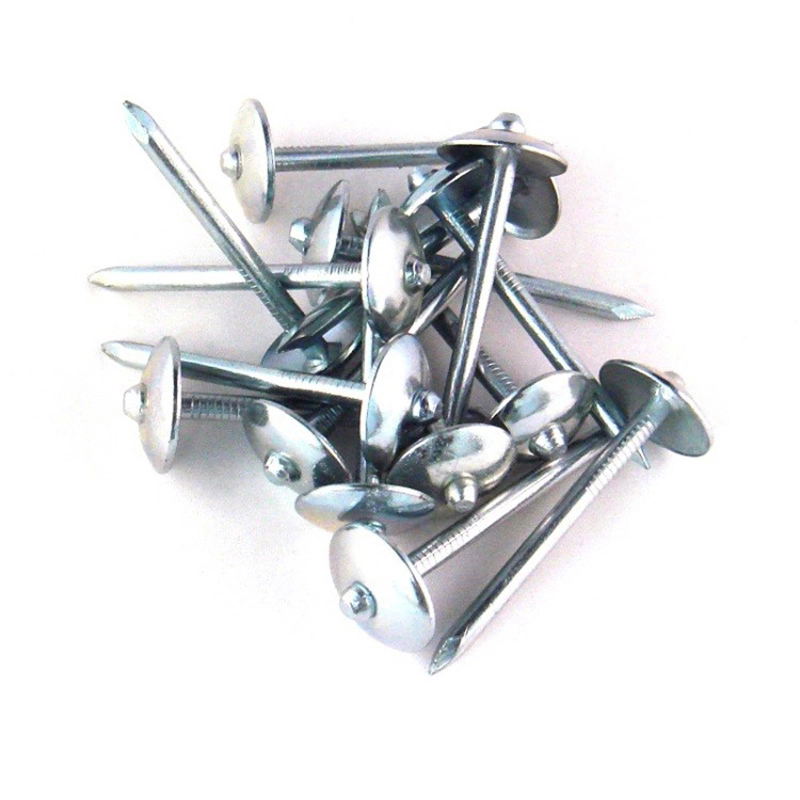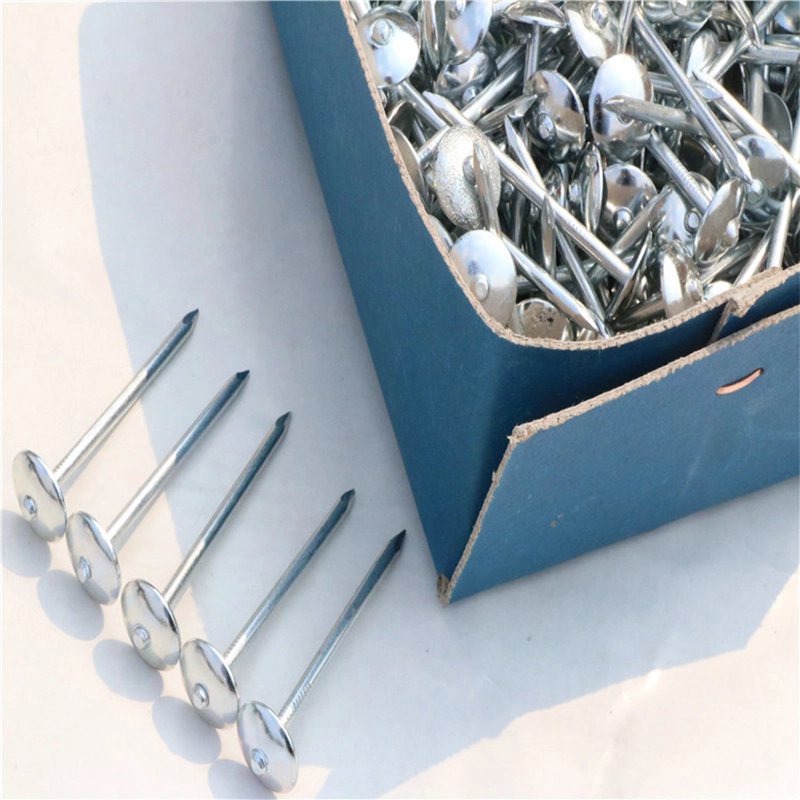Head Design:
Common nails typically have a flat, circular head that provides a surface for hammering and helps to secure the material being fastened.
The head shape and size can vary depending on the specific type of common nail.
Shank Design:
The shank, or body, of a common nail is cylindrical in shape and can be either smooth or have a series of small ridges or grooves, known as annular threads or spiral threads.
The shank design helps to improve the holding power of the nail once it is driven into the material.
Pointed Tip:
Common nails have a sharp, pointed tip that facilitates penetration into the material being fastened, such as wood, drywall, or other construction materials.
Material Composition:
Common nails are usually made from steel, either plain steel or coated with various materials like zinc (galvanized) or vinyl to improve corrosion resistance.
Size and Length:
Common nails are available in a wide range of sizes, typically measured in "penny" sizes (e.g., 8d, 16d), which indicate the nail's length and thickness.
The length of a common nail can vary from around 1 inch (25 mm) to 6 inches (150 mm) or more, depending on the specific application.
Common nails are versatile and widely used for a variety of applications, including:
Framing and structural construction
Attaching plywood, drywall, or other sheathing materials
Securing trim, molding, and other finishing touches
General household repairs and DIY projects

